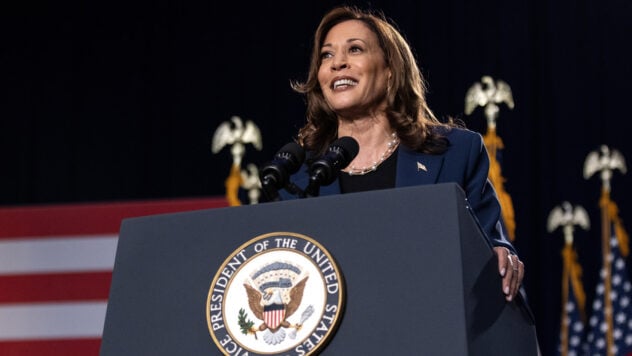
Incumbent US Vice President Kamala Harris is ahead of Republican candidate Donald Trump in four of the seven key states that are likely to determine the outcome of the presidential election.
This is evidenced by the results of a Bloomberg News/Morning Consult poll.
Harris is ahead of Trump in several key states
Consequently, Harris is ahead of Trump in:
Now watching
- Arizona – 49% to 47%;
- Michigan – 53% vs. 42%;
- Nevada – 47% vs. 45%;
- Wisconsin – 49% vs. 47%.
At the same time, both candidates have the same level of support in the state of Georgia – 47% each.
Meanwhile, Trump is leading in North Carolina (48% vs. 46%) and Pennsylvania (50% vs. 46%).
Overall, Kamala Harris is ahead of Donald Trump by one percentage point – 48% of respondents support the US Vice President, and 47% support the former president.
In turn, Joe Biden was losing to Trump by 2 percentage points in the same poll in early July (47% vs. 45%).
It is noted that this poll was conducted between July 24 and 28. It involved nearly 5,000 American voters from seven states. The margin of error was 1 percentage point.
How Harris Changed Voters' Views on Voting
These numbers suggest that Harris has a chance to reassemble the coalition of voters that brought President Barack Obama to the White House. The vice president also has a clearer path to victory than Biden, who has struggled to shore up the Democratic base.
However, the poll shows new enthusiasm for the Democratic Party under Harris. The switch in candidates is likely to boost turnout in swing states, where there is evidence that her candidacy has energized key districts for the party.
More than one-third of voters in seven districts said they were more likely to vote now that the race was between Trump and Harris. And among black and Hispanic voters, those numbers rose to 49% and 44%, respectively.
Nearly two-thirds of black voters said they were now more or somewhat less likely to vote in November.

